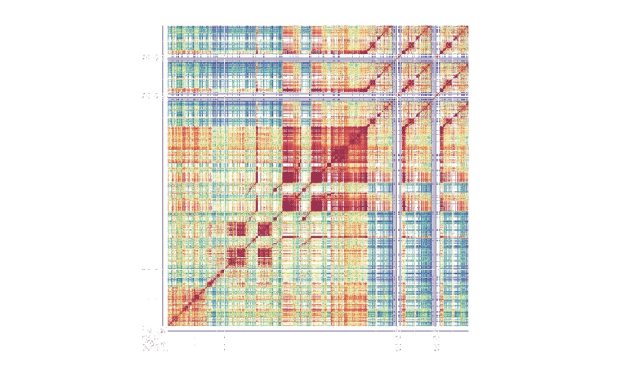Returning to Caius and characterising Covid-19 antibodies
- 15 December 2022
- 3 minutes
While many wish to just move on from the Covid-19 pandemic, Isobel Ramsay-Stubbs (Medicine 2004) is interrogating the virus and the antibody response after returning to Gonville & Caius College to begin a PhD, 15 years after graduating.
“One of the motivations for doing it is that I, unlike my colleagues because I was on maternity leave, am not thoroughly sick of it in quite the same way,” says Isobel, who completed her pre-clinical medicine degree at Caius in 2007 before continuing her studies at Oxford.
“Simply, I'm looking at the importance of particular groups of antibodies that we think some people produce when they've either been infected or vaccinated.
“It’s lovely working clinically with individuals, but doing something that might have more far reaching effects is a big motivator.”
Using a large group of patient samples, Isobel, a specialist registrar in infectious diseases and microbiology, is assessing how many people produce these antibodies and how they work.
“One of the reasons for trying to characterise this is that a lot of the drug treatments out there for COVID at the moment are monoclonal antibodies that target the virus specifically,” she adds.
“Some of them are better than others. And some of them the virus can evolve to escape. Some of them it's less likely to do that.
“Trying to characterise the roles of different antibodies made after people have been infected or vaccinated may mean that we can pinpoint antibodies that might be useful for future treatment.”
“That’s a long way down the line, but that's the potential eventual idea. My PhD is focused on the first steps in understanding these antibody responses..”
Isobel discovered she was pregnant with her second child in the early days of the pandemic, just as Covid-19 was reaching the UK. With the effects on pregnancy unknown, Isobel was deployed in a policy role at Addenbrooke’s, also working on mitigation measures to reduce the spread of infection within the hospital.
She was acutely aware of the full effects of the pandemic. Her husband, an anaesthetist, was recalled from his PhD at Queen’s to be deployed on the Covid-19 front line.
“I did find it quite difficult not being there,” she adds.
“We were always thinking that a pandemic would appear at some point. To have something that so affects both your work but also all of the rest of life as well is quite unusual.”
On her return from maternity leave, Isobel ran the University of Cambridge’s student screening programme for six months. The programme, which saw students tested as households and allowed for monitoring and research, was wound down in April 2022.
Isobel’s eldest child started school this term as she returned to university. She has an established friendship network in the city, but is also making use of the MCR’s family and parents’ group.
“Going to freshers events, especially in Harvey Court, which is where I lived in my first year at university, was quite odd,” she says.
“It feels like I haven’t really progressed, coming back to exactly where I was 18 years ago!
“But this is a very, very different type of experience this time around.”


